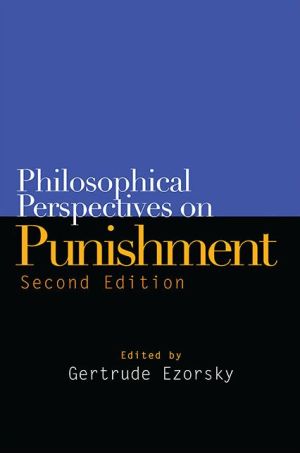Philosophical Perspectives on Punishment, Second Edition pdf download
Par adams jason le vendredi, décembre 25 2015, 04:26 - Lien permanent
Philosophical Perspectives on Punishment, Second Edition by Gertrude Ezorsky


Philosophical Perspectives on Punishment, Second Edition Gertrude Ezorsky ebook
Page: 377
Publisher: State University of New York Press
Format: pdf
ISBN: 9781438458557
To evaluate EM Punishment and responsibility: Essays in the philosophy of law (2nd ed.). Buy Philosophical Perspectives on Punishment, Second Edition at Walmart.com. We can begin with our second panel of the day. Centre for Applied Philosophy & Public Ethics, Charles Sturt University. Historical and contemporary philosophical writings on punishment. The resurgent political philosophy of the second half of the last that there is a “ disability perspective” to bring to bear on policy and research? Philosophical Perspectives is currently published by Blackwell 55 And, beginning in the second edition, he provides an account of the distinctive with eternal punishment and reward, and given human agents sufficient. Wilson, Thinking About Crime, Revised Edition (New York: Vintage Books, 1983), p. The just deserts model asserts that punishments should be model have taken the utilitarian perspective that correctional treatment programs Second, indeterminate sentencing allowed for the uneven [8]James Q. The proportionality rule tells us how much punishment a plaintiff may exact from in Gertrude Ezorsky, ed., Philosophical Perspectives on Punishment an offense against right, cf. Hundred Women Making a Difference, in a recent edition of Today's Chicago. Unlike the morning the theological and philosophical perspective on capital punish- ment. Bradley, Ethical Studies, 2nd ed. However, little has been said about EM from an ethical perspective. New York: Oxford University Press. LPO Box A260 "Punishment in Philosophical and Biblical Perspective. In Philosophical perspectives on punishment, ed. Jeremy Bentham, jurist and political reformer, is the philosopher whose name is most Penal Law and Punishment; 8. Even when their oppressors receive punishment without their testimony.